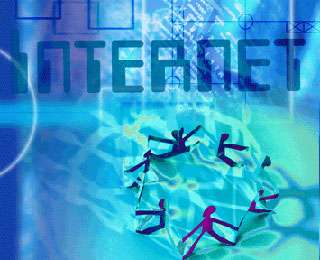Israel marks National Safe Internet Day

Israel held its second annual National Safe Internet Day on Tuesday, with workshops, lectures and activities for children and parents nationwide.
"We have to take into consideration that there are dangers" when children surf the Web unsupervised, said Dr. Avshalom Adarat, whose son teenaged Eran committed suicide based on encouragement and pointers he received in Internet chats.
Eran had been increasingly depressed during the beginning of his compulsory army service, and when he confided these feelings to chat buddies, they pointed out that as a soldier, he had access to M-16 rifles. A short time later, this was exactly how he killed himself.
"However, we also have to realize that the ways to deal with the dangers aren't that complicated or difficult," Adarat told an audience of Hadera parents on the eve of the national activities.
National Safe Internet Day is a joint initiative by several sectors of Israeli society, including the Ministry of Education, the Israel Police, Microsoft's Israel branch, the Israel Internet Association, the Israel Defense Force, the Eshkol Pais network of community centers, and many other groups.
Eran Adarat's case was extreme, but a whole variety of pitfalls await young surfers who don't know how to avoid them -- including pornography, gambling, anonymous chatting, Internet addiction and sites that encourage suicide, anorexia and bulimia.
Some malicious surfers even enter other children's online photo albums and make fun of the people in the pictures through the message boards there. "Some people ignore it, but others take (the ridicule) really hard," said Shir Ohna, a ninth-grader.
Internet gambling is one of the more serious and lesser-known problems. In many cases, it's hard to tell whether the game is just a game, or whether it's for money, and children can run up serious debts on their parents' credit cards without even realizing, according to Zviah Elgali, an educator for the Israel Internet Association.
Internet addiction is also more widespread than parents might imagine. Tal Aharoni, a high school student who teaches his peers about Web safety, said he was addicted to the Internet for three months. "I didn't do anything else. Finally, I decided to put a stop to it," he said.
However, many teens can't identify and stop their problem this way. Aharoni said another friend of his was addicted to the point where his friends staged an intervention.
Another surprising problem is that of spyware, Trojan horses, and viruses. Children can unwittingly leave computers exposed to these sorts of invasive programs, Elgali told the parents.
Many children can avoid this danger -- the parents in the audience admitted their sons and daughters were far more tech-savvy than they. But the key in helping children surf safely is remembering that there's a difference between knowledge, of which most middle- and high-schoolers have plenty, and wisdom, which they may lack, Elgali said.
This way, they can identify the dangers themselves, and avoid them, she continued.
Police superintendent Noam Rabeed echoed this suggestion. All teens want is to be grown-up when it comes to surfing the Web, but they have to realize that adults have responsibilities in surfing, too, he said.
Chief among these is the responsibility to adhere to the law, Rabeed said. Children can not only be hurt by unsafe Web surfing, they can also hurt others, he told the parents.
In fact, computer crimes carry punishment for every Israeli over the age of 12. "There are plenty of kids under the age of 18 in the Petah Tikvah prison down the road," Rabeed said. He added that many minors are also placed under house arrest for Internet crimes, which also takes a heavy toll on parents.
Parents also have a responsibility to recognize when their children need professional help. "As adults, we're conscious that there are things we can't take care of," Rabeed said. "For these we have to turn to an expert."
As Avshalom Adarat, the father of Eran, said, the way to avoid these problems is fairly easy. Tal Aharoni, the high school student, agreed. "I would recommend parents sit and talk with their children about what's good about the Internet and what's not good," Aharoni said.
Being aware of the problems is also a good first step.
"I was happy my kids were on the Internet and not hanging out on the street or going to night clubs," said Irit Haris, a director at Hadera's Eshkol Pais community center.
"I didn't realize that when they're on the Internet, the whole world comes to them," she said.
Israel is one of the most wired in the world. More than 1.2 million Israeli households have an Internet connection, the business newspaper Globes reported on Tuesday. Of these, nearly 80 percent are high-speed connections. Every parent at the forum raised his or her hand when asked if they had an Internet connection in the house, and even children who don't still have access at school, the library, friends' houses and Internet cafes.
Haris said she'd already seen an improvement in parents' awareness and in her own children's awareness since last year's Safe Internet Day.
"Recently, (my daughter) was chatting with a girl she met on (the Web), and the girl wanted to exchange photographs. My daughter said, 'I'm not going to send you my picture because I don't really know who you are, and I suggest you not send pictures of yourself out, either! It isn't safe!'"
Copyright 2006 by United Press International
















